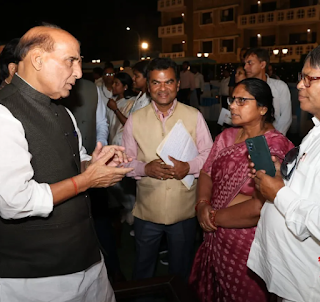The project represents an effort to explore India's ancient military philosophy, and it takes place in the context of the government's broader initiatives to promote "Indianization" across various sectors, including education, health, and science. On Saturday, Defense Minister Rajnath Singh introduced the Army's Project Udbhav (meaning "origin"), which aims to draw insights on statecraft, strategy, diplomacy, and warfare from ancient Indian philosophy found in texts like Chanakya's Arthashastra, Kamandaka's Nitisara, and Thiruvalluvar's Thirukkural. The project's scope includes the study of how Indian warrior kings successfully repelled Mughal invaders.
This launch occurred during the inauguration of the Indian Military Heritage Festival and was attended by Army Chief General Manoj Pande, IAF Chief Air Chief Marshal VR Chaudhari, and other senior officials. Lieutenant General Tarun Kumar Aich, Deputy Chief of Army Staff (Strategy), explained that this project aims to reexamine India's ancient military wisdom and intends to synthesize it with contemporary military practices to address modern security challenges uniquely. This collaborative effort involves the Army and the think tank United Service Institution of India. Arthashastra emphasizes the significance of strategic partnerships, alliances, and diplomacy, aligning with modern military practices like international cooperation and soft power projection.
"Chanakya's teachings on statecraft and warfare are widely studied worldwide. Similarly, the wisdom of Thirukkural advocates ethical conduct in all endeavors, including warfare, aligning with modern military ethical principles of just war and the Geneva Convention."
In addition to ancient texts, the project involves revisiting significant military campaigns and leaders. It highlights the achievements of historical empires such as Chandragupta Maurya, Ashoka, Cholas, and the Ahom kingdom, which effectively ruled for 600 years, repeatedly defeating the Mughals. The naval battle of Saraighat in 1671, led by Lachit Borphukan, is cited as a remarkable example of employing clever diplomatic negotiations to gain an advantage, psychological warfare, military intelligence, and exploiting the strategic weaknesses of the Mughals. The principles from the ancient knowledge system were applied by historical figures like Chhatrapati Shivaji and Maharaja Ranjit Singh, who defeated numerically superior Mughal and Afghan invaders.



